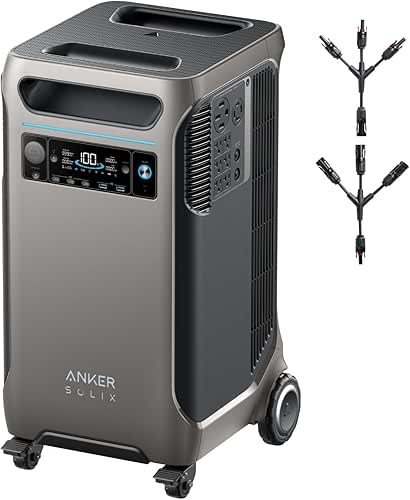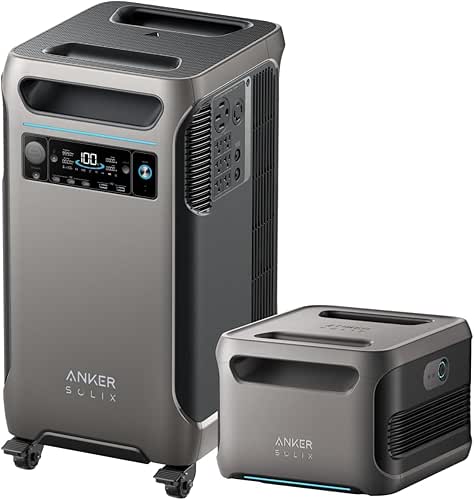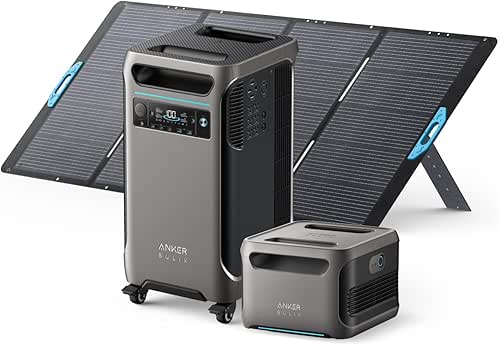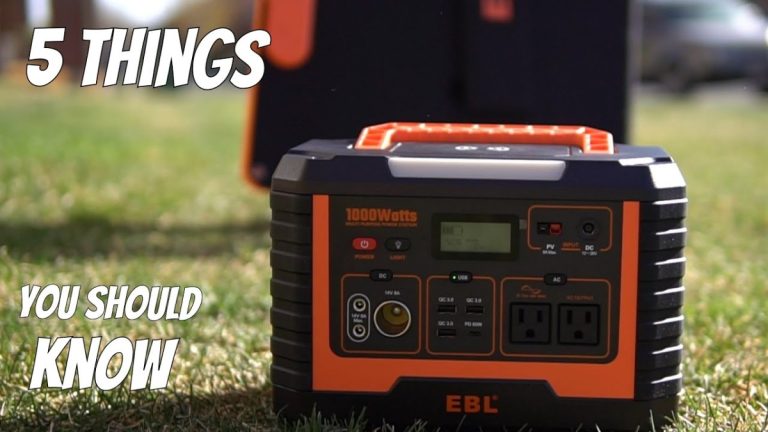Are There Portable Power Solutions Designed For Powering Small Appliances In A Mobile Food Truck?
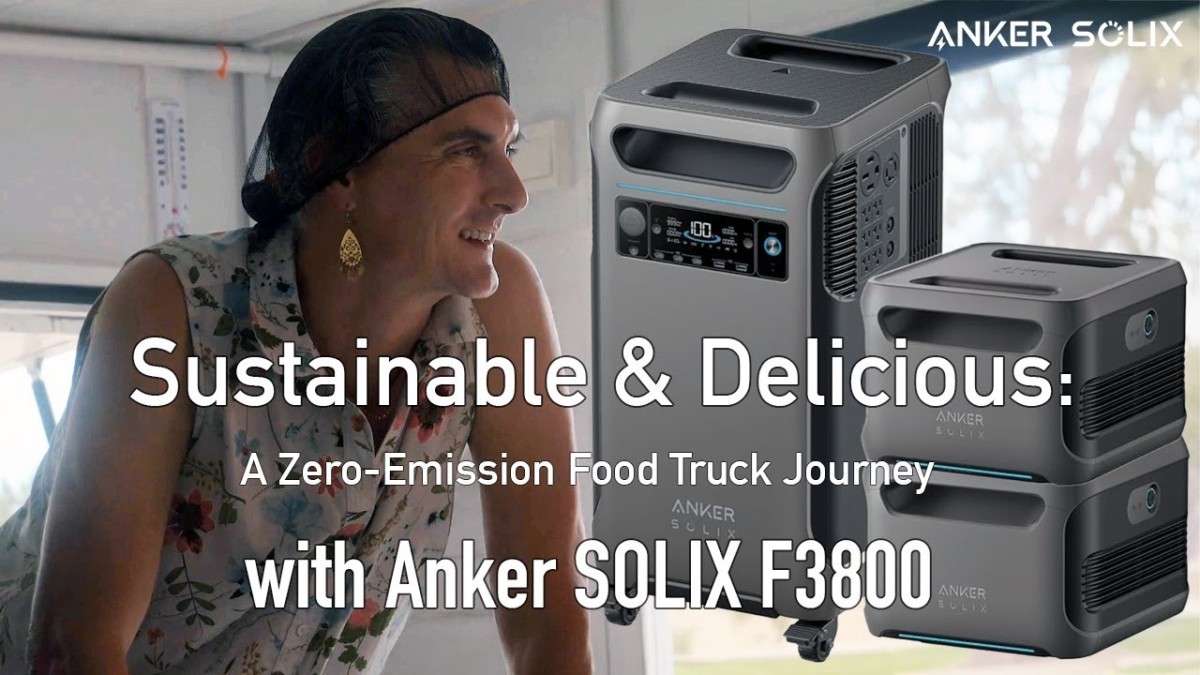
If you’re a mobile food truck owner seeking an efficient and convenient way to power your small appliances on the go, you may be wondering: are there portable power solutions tailor-made for this purpose?
Rest assured, there are! In this article, we’ll explore the world of portable power solutions and how they can provide the energy your mobile food truck needs to keep the delicious meals rolling.
Whether it’s powering your fridge, microwave, or fryer, these portable power solutions offer a reliable and flexible option for food truck entrepreneurs like yourself.
So, let’s dive into the world of portable power and discover the perfect solution for your mobile culinary adventures!
[embedyt] https://www.youtube.com/watch?v=FOipPSKQXFs[/embedyt]Types of Portable Power Solutions
When it comes to powering small appliances in a mobile food truck, there are several types of portable power solutions to consider.
These include generators, battery packs, and inverter systems.
Each option has its own features and benefits, so it’s important to understand what each solution offers before making a decision.
Generators
Generators are a popular choice for providing power in a mobile food truck.
They come in various fuel types, including gasoline, propane, diesel, and even solar power.
Generators work by converting fuel into electricity, which can then be used to power the appliances in your food truck.
Gasoline generators are often the most common and readily available option, but propane and diesel generators can also be great alternatives depending on your needs.
Battery Packs
Battery packs are another portable power solution that can be used to power small appliances in a mobile food truck.
These packs are typically made up of lithium-ion batteries or deep cycle batteries.
Lithium-ion battery packs are known for their lightweight and high energy density, making them ideal for portable applications.
Deep cycle batteries, on the other hand, are specifically designed to provide continuous power over a longer period of time.
Inverter Systems
Inverter systems are a third option for portable power solutions.
These systems work by converting DC power stored in batteries into AC power, which is then used to power your appliances.
Inverter systems are available in different types, including pure sine wave inverters and modified sine wave inverters.
Pure sine wave inverters provide a smooth and consistent flow of power, while modified sine wave inverters are a more affordable option but may not be suitable for sensitive electronics.
Considerations for Choosing Portable Power Solutions
When choosing a portable power solution for your mobile food truck, there are several important considerations to keep in mind.
These include power requirements, portability, noise levels, fuel type, and run time.
Power Requirements
One of the first things to consider is the power requirements of your appliances.
You need to determine the total wattage or power consumption of all the appliances that will be running simultaneously, as this will help you choose a power solution that can handle the load.
Portability
Since you’ll be operating a mobile food truck, portability is crucial.
You’ll want a power solution that is lightweight, compact, and easy to transport.
Generators that come with handles or wheels can be more convenient, while battery packs should be lightweight and have a small footprint.
Noise Levels
Noise can be a significant concern, especially when operating in crowded areas or during quiet events.
Gasoline generators tend to be the loudest, while propane and diesel generators are generally quieter.
Battery packs and inverter systems are usually silent, making them a good choice if noise is a concern.
Fuel Type
Choosing the right fuel type for your power solution is essential.
Gasoline generators are widely available and offer good power output, but they require regular refueling.
Propane generators are a cleaner option and may be easier to find refill stations for.
Diesel generators are reliable and fuel-efficient, but they can be more expensive.
Solar generators are an environmentally friendly choice that relies on sunlight to generate power.
Run Time
The run time of your power solution is also an important factor to consider.
You’ll want a solution that can provide enough power to run your appliances for the desired duration.
Generators typically provide longer run times, especially when connected to larger fuel tanks.
Battery packs and inverter systems may have limited run times, but they can be recharged quickly.
Generator Options
When it comes to generators, there are several options available for powering small appliances in a mobile food truck.
The most common generator types include gasoline, propane, diesel, and solar generators.
Gasoline Generators
Gasoline generators are the most common and readily available option.
They offer a good power output and can handle a variety of appliances.
Gasoline generators are often affordable, but they require regular refueling and can be noisy.
Propane Generators
Propane generators are a cleaner and more eco-friendly option compared to gasoline generators.
Propane is readily available and often cheaper than gasoline.
Propane generators also tend to run quieter than their gasoline counterparts.
Diesel Generators
Diesel generators are known for their durability and fuel efficiency.
They can handle heavy loads and run for extended periods of time.
However, diesel generators can be more expensive upfront and may require more maintenance.
Solar Generators
Solar generators are a sustainable and environmentally friendly option.
They rely on sunlight to generate power, making them a great choice for outdoor events.
Solar generators can be more expensive upfront but have low operating costs and are virtually silent in operation.
Battery Pack Options
Battery packs are an alternative power solution for mobile food trucks.
They are available in different types, including lithium-ion, deep cycle, and AGM battery packs.
Lithium-ion Battery Packs
Lithium-ion battery packs are lightweight, have high energy density, and can provide a consistent power output.
These packs are reliable and can be recharged quickly.
Lithium-ion battery packs are ideal for applications that require a portable and long-lasting power source.
Deep Cycle Battery Packs
Deep cycle battery packs are designed to provide continuous power over an extended period.
They have a slower discharge rate and can handle repeated charge and discharge cycles.
Deep cycle battery packs are commonly used in applications where a steady power source is required.
AGM Battery Packs
AGM battery packs, or absorbed glass mat battery packs, are maintenance-free and highly resistant to vibrations.
These battery packs are spill-proof and can be mounted in any position.
AGM battery packs are versatile and can be a reliable choice for powering small appliances in a mobile food truck.
Inverter System Options
Inverter systems are another option to consider for portable power solutions.
They convert DC power stored in batteries into AC power, which is required by your appliances.
There are two main types of inverters: pure sine wave inverters and modified sine wave inverters.
Pure Sine Wave Inverters
Pure sine wave inverters provide a smooth and consistent flow of power, similar to the power you get from the grid.
They are more expensive but can handle sensitive electronics without causing any damage or interference.
Pure sine wave inverters are recommended for powering appliances like refrigerators, microwaves, and coffee machines.
Modified Sine Wave Inverters
Modified sine wave inverters are a more affordable option but may not be suitable for all appliances.
They produce a stepped waveform and may cause some electronic devices to malfunction or produce noise.
Modified sine wave inverters are often used for simple appliances like lights, fans, and basic electronics.
Powering Small Appliances
Now that we have explored the different portable power solutions available, let’s delve into powering specific small appliances commonly found in mobile food trucks.
These appliances include refrigerators and freezers, fryers and griddles, blenders and mixers, coffee machines and espresso makers, microwaves and ovens, toasters and sandwich grills, as well as ventilation systems.
Refrigerators and Freezers
Refrigerators and freezers are essential for storing perishable food items in a mobile food truck.
They require a reliable power source to maintain consistent temperatures.
Generators, especially those with higher power output, can easily handle the power requirements of refrigeration units.
Fryers and Griddles
Fryers and griddles are commonly used for cooking in a mobile food truck.
These appliances require a significant amount of power to heat up quickly and maintain a consistent cooking temperature.
Gasoline or propane generators are typically preferred for powering fryers and griddles due to their high power output.
Blenders and Mixers
Blenders and mixers are essential for creating delicious smoothies, sauces, and desserts in a mobile food truck.
These appliances usually have lower power requirements and can be easily powered by battery packs or inverters.
Lithium-ion battery packs or pure sine wave inverters are recommended for powering blenders and mixers to ensure a smooth and consistent power supply.
Coffee Machines and Espresso Makers
Coffee machines and espresso makers are vital for serving hot beverages on-the-go.
They require a stable power source to ensure the perfect brew every time.
Generators, especially those that can handle higher power loads, are often the best choice for powering coffee machines and espresso makers.
Microwaves and Ovens
Microwaves and ovens are essential for heating up food quickly and efficiently.
These appliances typically require higher power outputs to operate effectively.
A generator with adequate power capacity, such as a larger gasoline or propane generator, is recommended for powering microwaves and ovens in a mobile food truck.
Toasters and Sandwich Grills
Toasters and sandwich grills are commonly used for serving breakfast or quick meals on-the-go.
These appliances can be powered by battery packs or inverters, as they usually have lower power requirements.
Deep cycle battery packs or modified sine wave inverters can handle the power needs of toasters and sandwich grills reliably.
Ventilation Systems
Ventilation systems are crucial for maintaining proper air circulation in a mobile food truck.
They help dissipate heat, remove cooking odors, and maintain a comfortable environment.
Ventilation systems typically have lower power requirements and can be powered by battery packs or inverters, depending on the specific model.
Calculating Power Requirements
Calculating the power requirements for your mobile food truck is essential to ensure that your chosen power solution can meet your needs.
This involves determining appliance power ratings, estimating daily energy usage, and considering surge power.
Determining Appliance Power Ratings
Start by determining the power ratings of each appliance you plan to use in your mobile food truck.
This information is typically provided on the appliance itself or in the user manual.
Look for the wattage or power consumption rating, which will give you an idea of the amount of power required to operate the appliance.
Estimating Daily Energy Usage
Once you have the power ratings for each appliance, estimate how many hours each appliance will be in use daily. Multiply the power rating of each appliance by the number of hours it will be in use to calculate the energy usage in watt-hours (Wh). Sum up the energy usage of all the appliances to determine your total daily energy usage.
Considering Surge Power
Appliances with motors or compressors, such as refrigerators and blenders, often require an initial surge of power when they start up.
This surge power is higher than the normal operating power and needs to be taken into account when choosing a power solution.
Check the documentation or appliance specifications to find the surge power rating, and make sure your power solution can handle these surge requirements.
Safety Considerations
When dealing with portable power solutions for a mobile food truck, safety should always be a top priority.
Here are some important safety considerations to keep in mind.
Proper Ventilation
Ensure that your power solution, whether it’s a generator or battery pack, is located in a well-ventilated area.
Generators release exhaust fumes that contain carbon monoxide, which can be dangerous if inhaled.
Proper ventilation helps to prevent the build-up of fumes and ensures safe operation.
Carbon Monoxide Detection
Install carbon monoxide detectors in your mobile food truck to provide an early warning in case of a gas leak or elevated levels of carbon monoxide.
These detectors can save lives by alerting you to potential dangers and allowing you to take prompt action.
Fire Safety
Take necessary precautions to prevent fires in your mobile food truck.
Keep flammable materials away from your power solution and ensure proper insulation and protection of electrical wiring.
Have fire extinguishers readily available and conduct regular fire safety checks.
Electrical Safety
Follow electrical safety guidelines when connecting and operating your power solution.
Ensure that your electrical connections are secure and avoid overloading circuits.
Use properly insulated cables and connectors, and never handle electrical equipment with wet hands.
Maintenance and Inspections
Regularly inspect and maintain your power solution to ensure safe and reliable operation.
Follow the manufacturer’s guidelines for maintenance, including oil changes, fuel filter replacements, and battery inspections.
Regularly check for any signs of wear, damage, or leaks and address them promptly.
Cost and Maintenance
Cost and maintenance requirements are important considerations when choosing a portable power solution for a mobile food truck.
Initial Costs
The initial cost of a portable power solution can vary depending on the type and model you choose.
Gasoline generators are typically more affordable upfront, while propane and diesel generators may have higher initial costs.
Battery packs and inverter systems can also vary in price, with lithium-ion battery packs generally being more expensive than other types.
Operating Costs
Consider the operating costs associated with your chosen power solution.
Gasoline generators require fuel and regular refueling, so ongoing fuel costs should be factored in.
Propane and diesel generators also require fuel but may have lower operating costs.
Battery packs and solar generators have minimal operating costs but may require periodic replacement or recharge of the batteries.
Maintenance Requirements
Different power solutions have varying maintenance requirements.
Generators typically require regular maintenance, including oil changes, filter replacements, and spark plug inspections.
Battery packs require periodic recharging and may need replacement over time.
Inverter systems generally have low maintenance requirements but should still be inspected periodically for any signs of wear or damage.
Other Considerations
Apart from the technical aspects and safety considerations, there are a few other factors to keep in mind when choosing a portable power solution for your mobile food truck.
Environmental Impact
Consider the environmental impact of your chosen power solution.
Gasoline and diesel generators produce emissions that contribute to air pollution.
Propane generators produce fewer emissions, making them a cleaner option.
Solar generators are the most environmentally friendly choice as they rely on renewable energy.
Noise Pollution
Noise pollution can be a concern, especially in crowded areas or quiet events.
Gasoline generators tend to produce more noise compared to propane and diesel generators.
Battery packs and inverter systems are usually silent, making them ideal for situations where noise is a consideration.
Backup Power Capability
Consider whether your chosen power solution has the capability to provide backup power.
In case of a power outage or equipment malfunction, having a backup power source can be invaluable.
Generators, with their high power output, are often a reliable choice for backup power.
Government Regulations
Be aware of any government regulations or guidelines that may apply to your mobile food truck.
Some areas may have restrictions on noise levels, emissions, or the type of power solution you can use.
Familiarize yourself with these regulations to ensure compliance.
In conclusion, choosing the right portable power solution for your mobile food truck is essential to ensure a reliable and efficient operation.
Consider the power requirements, portability, noise levels, fuel type, and run time when making your decision.
Evaluate the different options available, such as generators, battery packs, and inverter systems, and choose the option that best suits your specific needs and preferences.
Don’t forget to prioritize safety, calculate your power requirements accurately, and consider factors like costs, maintenance, environmental impact, and government regulations.
With careful consideration and a comprehensive understanding of the available options, you can find the perfect portable power solution for your mobile food truck.

